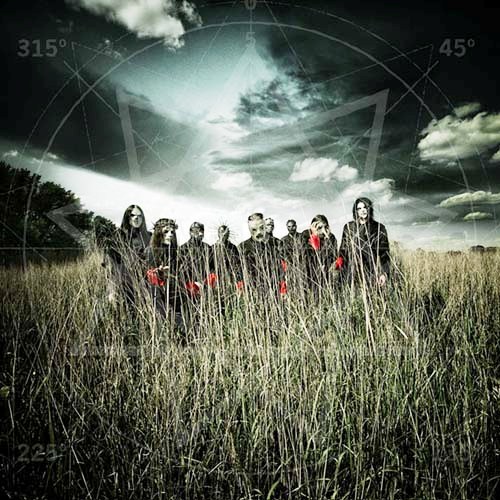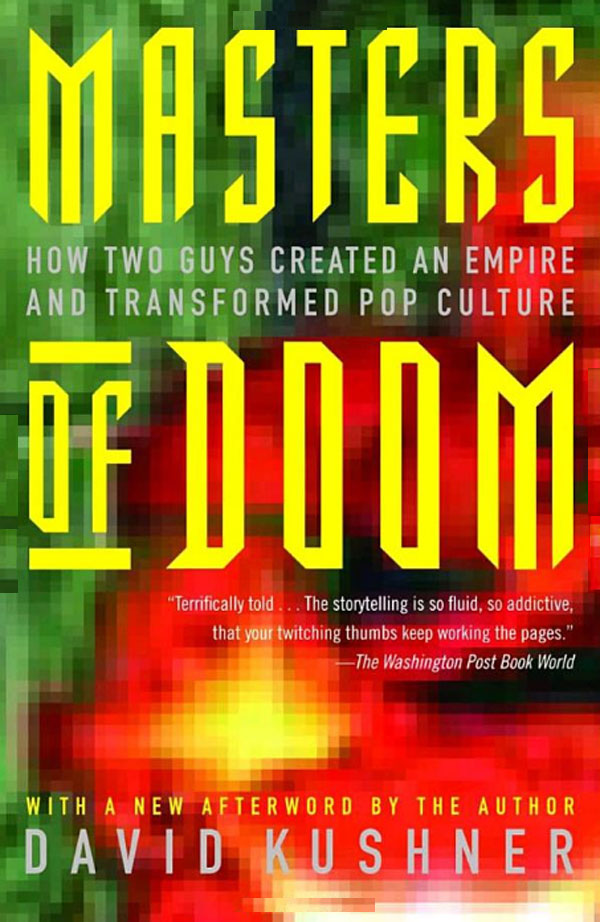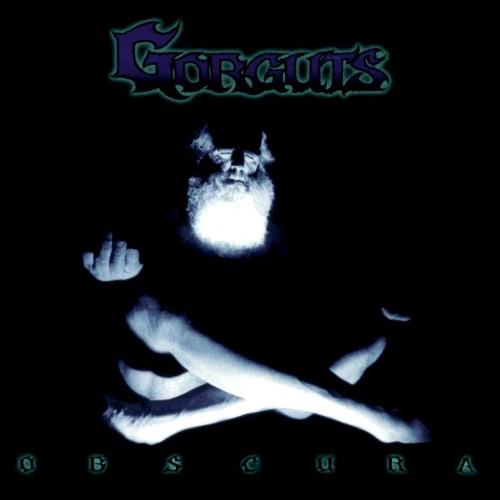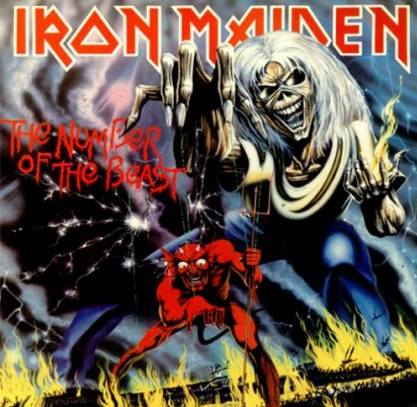 There’s lots of bad music these days. I don’t mind that, but what bothers me is the lack of interesting bad music.
There’s lots of bad music these days. I don’t mind that, but what bothers me is the lack of interesting bad music.
Where’s 2013’s answer to such moments as 2:34 in Korn’s biggest hit? Where’s Faith no More and Mike Patton when you need them? Where are the modern rejoinders to “CRAAAAWWWLIING IN MY SKIIIIN” and “LET THE BODIES HIT THE FLOOOOOR” and other inspired fits of stupidity for when you’ve got too many brain cells? Why does all modern bad music feel equivalent entertainment-wise to staring at a wall?
The first two Slipknot albums were ass and I will hate them forever, but they were memorable. The third was half shitty songs and half songs that I unironically enjoy. This album showcases a new style for the band…or a lack of one. Slipknot has no identity of their own any more. They sound indistinguishable from Chimaira, Lamb of God, and Machine Head. All Hope is Gone is like an album created by a committee.
Opening song “Gematria” writes a big quod erat demonstrandum on this hypothesis. The band doesn’t just use cliches, these use every cliche: It has Machine Head aggro-groove, FFDP-esque tough guy vocals, ultrahardcore breakdowns, and obviously the song itself goes nowhere. You can hear the band asking themselves “well, rapping on metal records isn’t cool anymore so…uh…this is what kids today like, I guess? No? Well about this?”
“Psychosocial” is a more cohesive song with an annoying chorus. “Sulfur” and “Butcher’s Hook” are filler hovering at the outer edge of listenable. “Vendetta” has stupid verses and a stupid chorus and a stupid middle section, there is not a single second of this song that I like.
We get an extra-heavy dose of Slipknot’s softer side this time around. “Dead Memories” is probably the best of the bunch, sounding like Alice in Chains. Then in descending order of quality is “Snuff”, “Child of Burning Time”, “Wherein Lies Continue”, and the worst song on the album, “Gehenna”, which sounds like Kid Rock trying to make a Mr Bungle song or something.
“This Cold Black” is a good song. That is not sarcasm. Somehow things work this time. Every now and then the three neurons this band has between them connect in an interesting way and produce good music. You can’t read too much into it.
The band has barely any use for four of their nine members this time around. There’s not much custom percussion, turntable scratches, or sampling. They sound like just a regular five piece band playing regular five piece music. They traded out the funny lyrics they just to have about Corey Taylor’s shitty childhood and replaced them with lyrics about politics. “ America is a killing name, it doesn’t feel or discriminate…Start a war in another backyard, and we’ll destroy your house of cards“…when I want opinions on the Iraq war, I definitely go to a bunch of people wearing clown masks.
Slipknot used to be a bad band with an amusing side. Now they’re making music so weak and boring that, by the end of All Hope Is Gone, even it seems to be asking you to turn it off.
No Comments »
 The Greek figure Achilles and the Irish figure Cú Chulainn were fated to live a short life, filled with glory. So it is with the programmers in Masters of Doom. Nearly everyone in this book is younger than thirty, and few of them did much of note after thirty. John Carmack has left id, and doesn’t seem that fussed with FPS gaming anymore. John Romero bounces between working for game studios and trying to keep independent startups afloat. The world of gaming has passed them by, but that’s how it is for everyone. Technology is a turning wheel that leaves no spoke at the top for long.
The Greek figure Achilles and the Irish figure Cú Chulainn were fated to live a short life, filled with glory. So it is with the programmers in Masters of Doom. Nearly everyone in this book is younger than thirty, and few of them did much of note after thirty. John Carmack has left id, and doesn’t seem that fussed with FPS gaming anymore. John Romero bounces between working for game studios and trying to keep independent startups afloat. The world of gaming has passed them by, but that’s how it is for everyone. Technology is a turning wheel that leaves no spoke at the top for long.
But between 1990 and 1996, the studio called id Software revolutionalised PC gaming four times. First there was 1990’s Commander Keen, the definitive “shareware” game, and proof that PCs could handle smooth side-scrolling action games without exploding. Then there was Wolfenstein 3D, which let you fight Hitler in a crude pseudo-3D environment. Then there was 1993’s Doom, which was anything but crude: this was the first game where you didn’t need to extrapolate or use your imagination, all the gore and violence was right there on the screen in front of you. Finally there was 1996’s Quake, which had a fully 3D engine and a sophisticated multiplayer interface (which facilitated deathmatching and online clans and competitive gaming and all the rest).
This book documents their story. When I opened the book and cringed a bit at the fish-out-of-water critic blurbs (“After finishing the book, readers may come away feeling like they’ve just played a round of Doom themselves, as, squinting and light-headed, they attempt to re-enter the world.”), I had three hopes for Masters of Doom, 1) that it wouldn’t spend overly long telling us about Carmack and Romero’s childhoods, 2) that it wouldn’t get on a soapbox about school shootings, and 3) that it wouldn’t dumb anything down or misrepresent the games. All three hopes were met.
We learn about the formation of id Software, with Carmack as the technical wizard and Romero as the creative genius. We learn of the various legal and semi-legal maneuvers that got them a creative team, a payroll, and computers to work on. They come across as people so focused on their work that they didn’t have time to check whether they were compatible as friends and as people. Early in the book the Carmack/Romero team is compared to Metallica’s Hetfield/Ulrich, which is a striking comparison – those guys were a tight unit when the band was furiously gigging and recording, but they started fighting as soon as they became rich and famous. Except that’s not fair – id Software kinda were friends, at least at the beginning. We learn about a D&D game they played together.
Other developers get some spotlight, such as poor ignored Todd Hall, hardcore “gamer-grrl” Stevana Case, and an incongruous middle-aged Mormon called Sandy Petersen (who would later work on Ensemble Studio’s Age of Empires strategy games). I got to speak to Petersen on an online forum once, and I asked him why he never says much about his time with id Software. His answer was something like “Working with id was like being a hyena stripping a carcass – the job got done, but it was unpleasant. With Ensemble, I enjoyed the process as well as the result.”
The years rolled on and id Software kept laying cards on the table like a poker player with a nut hand. But infighting between Carmack and Romero took its toll, and Romero left to form a new company: Ion Storm. The sad tale of Ion Storm is also documented here, and I was expecting to skip through that part. Ion’s disastrous three years working on Daikatana is well known on the internet. But I was wrong, and learned a lot of new things, such as exactly how hostile the relationship between Ion and Eidos became after Romero blew through $44m of Eidos’s money and failed to produce a game. It makes me wonder whether Romero would ever have been successful without Carmack’s technological sorcery backing him up. Some people can only thrive in a symbiotic relationship.
For fans of Doom etc, this is a fascinating book. It shows how the games were made and how we got from there to here. Most of it seems reliable (or at least backed up by other sources I’ve read), and it’s readable and entertaining regardless of technical knowledge. It came out in 2003, but there seems to be very little in 2013 worth adding to it. Id Software had its day, and now the night comes.
No Comments »
Did you ever think that the mouse hole on the cover of Megadeth’s Risk looks like a eagle’s head? You might need to step back to see it. The cat’s left paw is the beak.

Gorguts’ Obscura is even worse. My eyes keep processing the man’s head as a pig’s head.

I hate the bolts of lightning on Iron Maiden’s The Number of the Beast. They look like cracked plastic, and when I see it my first thought is always “my CD got stepped on.”

Ride the Sky’s New Protection is meant to depict an angel emerging from a cocoon, except it looks more like an angel who has, in scientific parlance, had a bat. The glistening gelid strands on his torso, his relaxed posture and expression…I can’t unsee it.
 No Comments »
No Comments »
 There’s lots of bad music these days. I don’t mind that, but what bothers me is the lack of interesting bad music.
There’s lots of bad music these days. I don’t mind that, but what bothers me is the lack of interesting bad music.




